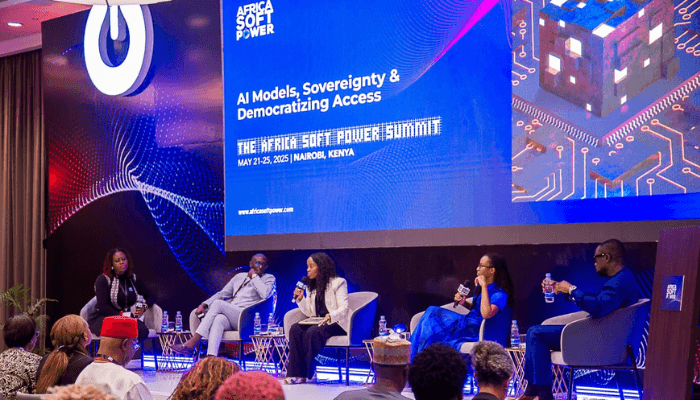African leaders and global technology executives are seeking AI sovereignty as the continent is trying to shape AI development rather than consume import systems.
This push comes as concerns grow around the representation of Africa in AI datasets and the need for technology solutions tailored to local contexts and languages.
The discussion won the centre stage at the 4th Africa Soft Power Summit in Nairobi, Kenya. There, industry leaders from Google, Meta and African organizations outlined strategies to ensure that the continent controls the digital future.
The summit, held on May 21-25 under the theme of “African Growth Engine: Coordinating Money Flows, Innovation and Global Opportunities,” highlighted AI as an important factor in Africa’s economic development.
On the panel on “AI Models, Sovereignty, and Democratized Access” within the Creative & Innovative Industry Conference, the speaker emphasized that digital sovereignty in Africa surpasses traditional concepts of data control.
Seidina Mussa Ndiai, president of the Senegalese Artificial Intelligence Association and a member of the United Nations’ high-level advisory body on AI, argued that true digital sovereignty in Africa means not only controlling data and infrastructure, but also “framing technology within its own standards.”
Maintaining a level playing field for AI has emerged as a priority against the backdrop of the summit, focusing on African leadership on both the continent and the world.
Lorna Omondi of Google Research Africa highlighted the organization’s efforts to make AI more comprehensive and effective.
“We have focused on model training through African datasets, enabling multilingual support for unfair communities. AI needs to solve the most important issues for African users, such as agriculture, healthcare, energy access, or legal services,” explained Omondi.
“When you buy language data from the ecosystem, you partner with local universities, local startups, and local governments. You create data purchased in the open market so that other startups can build on the same thing that we’re building.”
Seydina Moussa Ndiaye highlighted the need for an African-centric definition of digital sovereignty that goes beyond traditional concepts of data and infrastructure control.
“Africa’s digital sovereignty is not just about controlling our data and controlling our infrastructure, but also about framing technology within our own standards,” he said.
Muthoni Karubiu, Chief Operating Officer of Amini, highlighted solutions that are more context-friendly than large-scale infrastructure investments. “It’s not about building a billion-dollar data center, it’s about understanding what works in our context,” she said, highlighting the rapid evolution of AI and the need for continued education. “There’s nothing I can tell you about AI, which is true even three years from today.”
The democratization of AI tools and fostering local innovation was identified by the panel as critical to continental success.
Meta’s Kojo Boakye pointed to open source AI models like Llama as an important enabler for African developers. “Open source AI is one of the biggest opportunities we have. Developers and entrepreneurs will be able to build without the need for billions of capital,” he said.
Addressing concerns about accountability and surveillance of technology companies, Boakye argued that the government retains sovereignty and regulatory tools, citing examples of regulatory measures and fines. He explained that companies such as META will operate within existing legal frameworks, comply with content regulations and work with law enforcement to address illegal material. “We’re under police when it comes to regulating high-tech companies,” Boakye said, acknowledging the complexity of content moderation in balancing legal requirements and principles of freedom of speech.
The summit provided an opportunity to demonstrate how to better implement the development of the AI and creative technology sector on the continent, demonstrating how innovative African approaches benefit the global economy and society. In her opening remarks, Dr. Nkiru Balonwu, founder of Africa Soft Power Group and lead converger for the summit, highlighted the importance of African leadership along with innovation.
“May is African month, and we will gather intentionally at this moment to celebrate our continent with the incredible wealth that 54 countries and global diaspora from around the world shape industry around the world,” Baronu said. “Not only does it grow in itself, it helps the world grow differently, more creative, more sustainable and more equitable. Africa’s creative and technical sectors have already proven to be a powerful engine for growth, both on the economic and social level.
The impact of AI will accelerate across business and society, and it is important for the continent to develop and incorporate African datasets and ensure that such systems are fair, accurate and relevant. It is also important for the wider world in a global ecosystem that seeks to preserve geographic sovereignty as digital infrastructures become increasingly interconnected.



